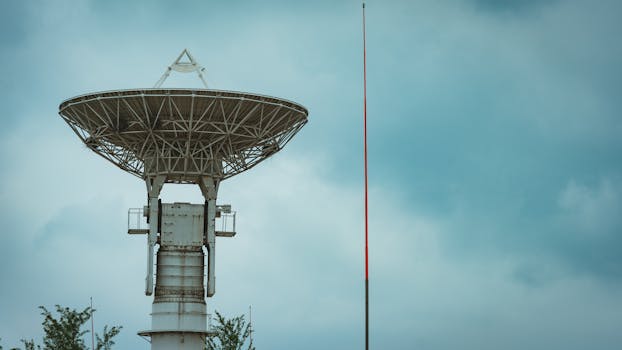The Future of Satellites: Revolutionizing Global Connectivity
The future of satellites is expected to revolutionize global connectivity, enabling faster and more reliable communication services. With advancements in technology, satellites are becoming increasingly important for various industries, including telecommunications, navigation, and weather forecasting.

The Future of Satellites: Revolutionizing Global Connectivity
The future of satellites is expected to revolutionize global connectivity, enabling faster and more reliable communication services. With advancements in technology, satellites are becoming increasingly important for various industries, including telecommunications, navigation, and weather forecasting. In this article, we will explore the future of satellites and their potential impact on global connectivity.
Satellites have been used for decades to provide communication services, including television broadcasting, telephone services, and internet connectivity. However, the traditional satellite industry is facing significant challenges, including high launch costs, limited bandwidth, and signal interference. To address these challenges, the industry is undergoing a significant transformation, driven by advancements in technology and innovations in satellite design and manufacturing.
Advancements in Satellite Technology
One of the key drivers of the future of satellites is the development of new technologies, including smaller satellites, advanced propulsion systems, and more efficient power sources. These advancements are enabling the production of smaller, lighter, and more cost-effective satellites that can be launched into orbit at a lower cost. For example, the development of CubeSats, which are small satellites that weigh less than 1.33 kilograms, has enabled the launch of hundreds of satellites into orbit at a fraction of the cost of traditional satellites.
Another significant advancement in satellite technology is the development of reusable launch vehicles. Companies such as SpaceX and Blue Origin are developing launch vehicles that can be reused multiple times, significantly reducing the cost of accessing space. This has enabled the launch of more satellites into orbit, which is driving the growth of the satellite industry.
Impact on Global Connectivity
The future of satellites is expected to have a significant impact on global connectivity, enabling faster and more reliable communication services. With the launch of hundreds of new satellites into orbit, the availability of satellite-based communication services is expected to increase significantly. This will enable more people around the world to access the internet, telephone services, and other communication services, regardless of their location.
Satellites are also expected to play a critical role in the development of the Internet of Things (IoT), which refers to the network of physical devices, vehicles, and other items that are embedded with sensors, software, and connectivity, allowing them to collect and exchange data. Satellites will provide the connectivity needed to enable the IoT, which is expected to revolutionize industries such as transportation, healthcare, and manufacturing.
Challenges and Opportunities
While the future of satellites is expected to revolutionize global connectivity, there are also significant challenges that need to be addressed. One of the key challenges is the management of orbital debris, which refers to the accumulation of defunct satellites, rocket parts, and other objects in orbit around the Earth. This debris can pose a significant risk to operational satellites and other spacecraft, and it is essential to develop strategies to mitigate this risk.
Another significant challenge is the development of regulatory frameworks to govern the use of satellites. As the number of satellites in orbit increases, it is essential to develop regulations to ensure that they are used safely and responsibly. This includes regulations to prevent interference between satellites, as well as regulations to ensure that satellites are designed and manufactured to minimize their impact on the environment.




